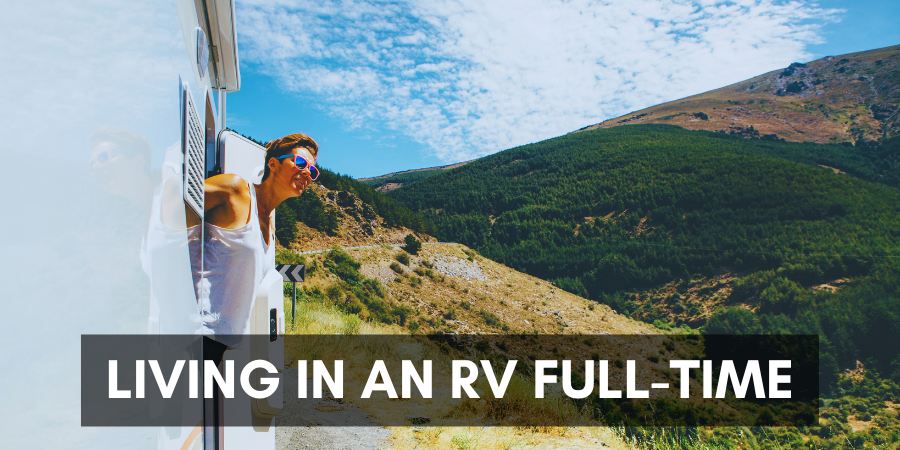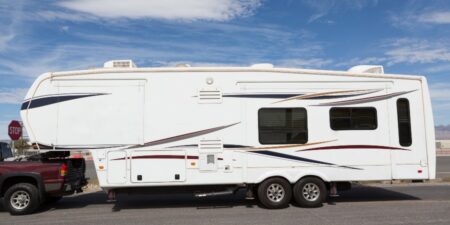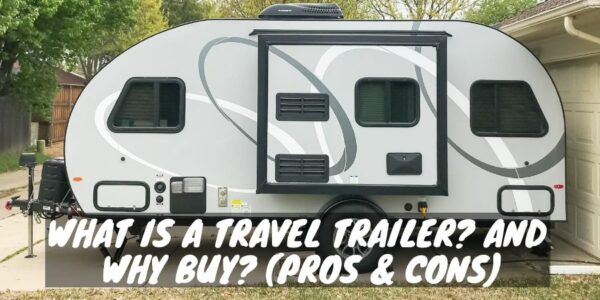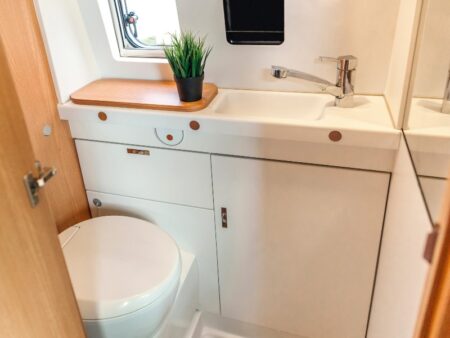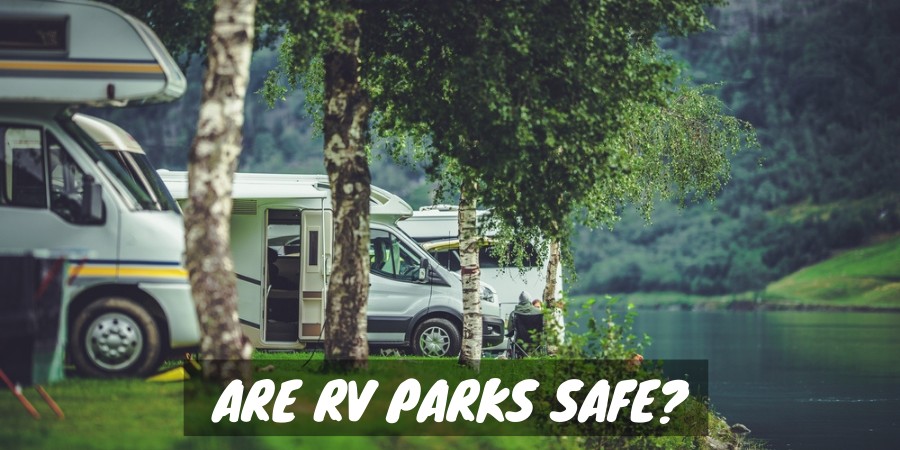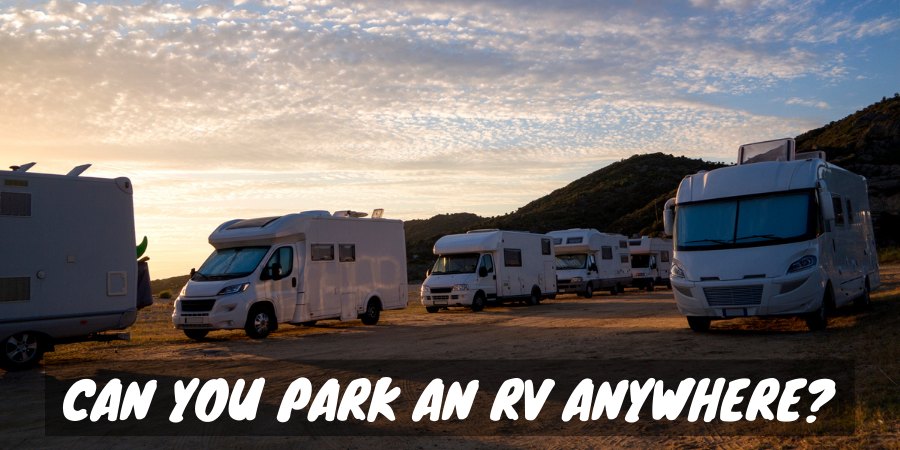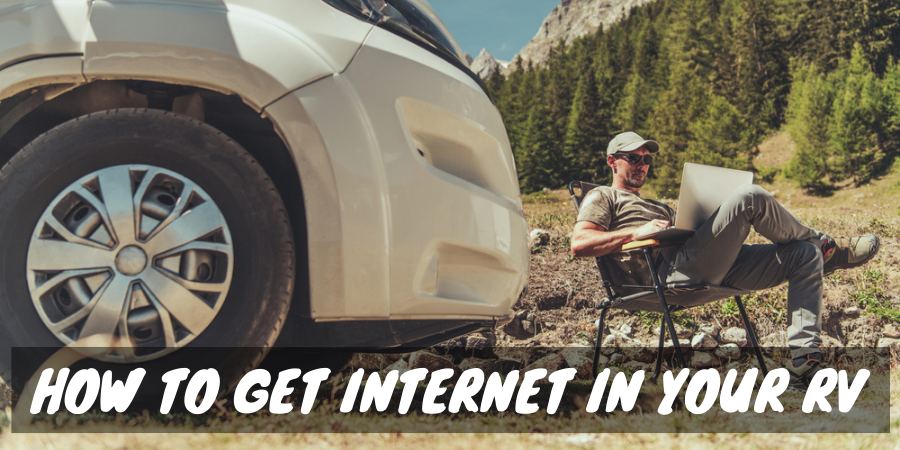Do you love RVing and wonder if going full-time is something you would love?
You may want to ask some of the approximately one million recreational vehicle owners who currently live and enjoy the full-time RV lifestyle.
As a full-time RVer myself, I can attest that living on the road isn’t all fun and games. The ups and downs of RVing may not suit everyone’s taste, so you need to first consider all the pros and cons before embarking on a full-time RV journey.
When you know what to expect, you can avoid many full-time RVing pitfalls and instead be ready for all the excitement and adventure that awaits!
Full-Time RV Pros
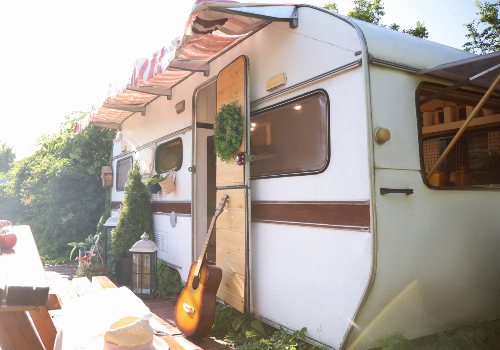
I went into my full-time life with an open mind and am still at it nearly a decade later.
To help you see why so many RVers don’t want to give up the full-time lifestyle, let’s start with all the great reasons you should consider giving it a try.
Freedom to Roam, Rest, Explore, Try, and Experience
The top reason to jump into a recreational vehicle and hit the road is for the freedom to travel where and when you decide.
The mix of what you can do and see at any place you decide to camp is never-ending.
Having the freedom to choose your activities and set your schedule to take it all in without rushing is an absolute game-changer.
Most full-time RVers state that in their “past” life, they only had one or two weeks of vacation time a year, which made it very difficult to avoid rushing and stress to see the sites.
Homeownership requires upkeep. Instead of getting out and enjoying life, you need to clean the gutters, mow the lawn, or replace that leaky faucet before your weekend is over and it’s back to work.
I won’t lie. RVs also need work.
But, the extent of maintenance and chores is so much less than with a home, which buys hours and hours of priceless free time for more leisurely activities every week!
Ability to Escape from Annoying or Dangerous Conditions
When you live in a home or apartment, you’ll often encounter neighbors who cause problems in your life.
The house next door may have several large dogs that bark all day or escape the yard and terrify the neighborhood. You may have neighbors who crank the music till midnight or whose home is the hangout for large groups of rowdy teenagers.
Whatever reason your neighbors disturb your peace, it’s hard to up and leave when you have a house or apartment.
When you RV, you can not only leave annoying neighbors behind when you sell off your sticks-n-bricks but also when you encounter bad situations anywhere you park the camper.
Feeling uneasy about those around you will happen now and again as you travel in your RV, and being able to pack up and drive away in a matter of minutes is a blessing.
The same ability to leave quickly also applies to other scenarios, such as bad weather approaching, a campground losing power, or you just don’t care for the view.
Lets You Chase Perfect Weather
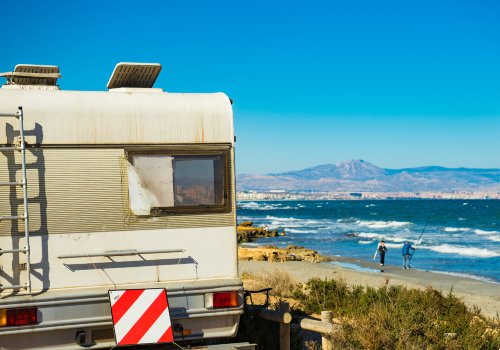
Weather preference is different for everyone, and RV full-timers can follow the seasonal temperatures they desire as the seasons change.
I prefer hot, sunny climates and will not cry if I never see snow again. However, others may want to enjoy 70-degree weather every day of the year or be in New England as the leaves change in the fall.
I go “off-weather” to see family or unique places when I feel like it, but being in an RV allows me to move along with the temperatures I prefer most, which is impossible to do in a stationary home.
Focuses Your Spending and Budget Plans
Living full-time in a motorhome, travel trailer, or fifth wheel isn’t necessarily cheap, as the average full-time RVer spends around $2250 monthly.
I spend closer to $1000 a month, while I have RV friends who go through $3500+!
Whatever income sources you have while on the road will impact your spending decisions, but you’ll still have to budget for everyday expenses such as food and insurance for health and RV coverage.
Moving from a house or rental into an RV changes how and where you spend your money. I certainly feel like I have much more “spendable” cash now that I live in my RV than in a home.
Fulltime RVing rearranges your mindset on what value you can squeeze out of each dollar so that you can make the most of every day.
If you live frugally in an RV, you can still enjoy the basics of shelter and food but use the extra money on a fun whitewater rafting trip or hundreds of other exciting experiences.
In a home, it always seems so much harder to escape the day-to-day bills like utilities, HOA dues, commuting to work, and unexpected maintenance that often derails any chance to save for fun outings.
Another fantastic perk of RVing is the free entertainment options at or near campgrounds that let you keep extra cash in the bank. Hiking, biking, reading, swimming, fishing, or chatting with fellow RV park guests are enjoyable and don’t cost a cent.
All those activities may get stale when you live in a fixed location, as you’ll always be seeing the same views or interacting with the same people.
Those hiking trails, fishing lakes, and friendly faces constantly change when you RV, so it always feels fresh and exciting!
Expanding Your Circle of Friends
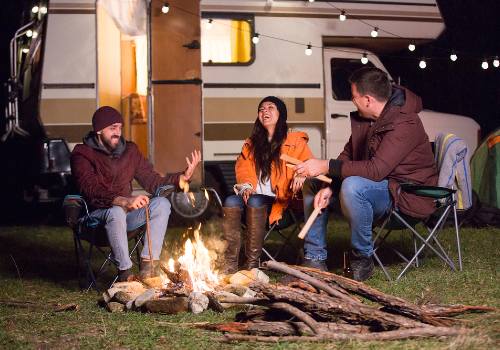
Unless you plan to full-time RV in remote off-grid locations or hide out inside your RV 24/7, it will be inevitable that you’ll meet and make friends with people from around the world.
RVers are a super friendly group, and campground chats and invites to hang out are a daily occurrence. Swapping contact information is commonplace, and most of us are willing to assist when fellow RVs need help.
While you won’t become dear friends with everyone you meet, you will expand your circle of friends and acquaintances. In the process, you’ll learn a lot about other cultures and locations, along with tons of tidbits on places to do or see on your travels.
Once you begin meeting people from across the RVing spectrum, you’ll run into them again either by accident or through planning meetups along your routes.
It’s comforting to know you have friends all over who are willing to help you out if you get into a pinch.
Streamlining Your Belongings
I don’t care how big of a recreational vehicle you have; you must become a minimalist if you choose to become a full-time RVer.
Most of us accumulate more things than we truly need, and when you have a home or apartment, there’s plenty of room to tuck it away.
In an RV, space is tight, and you need to limit weight, so you’ll need to dispose of most of your belongings.
I’ll admit this can be very difficult for most people, but once you streamline your belongings, a whole new world opens up that feels light and free.
Not only are you not physically having to deal with excessive items (moving them about or keeping them clean), you realize how much money you spend on objects that bring no actual value into your life.
Getting rid of the things that clutter your life and seeing that you can easily live without them is eye-opening and changed my life.
Bonding More Than You Thought Possible
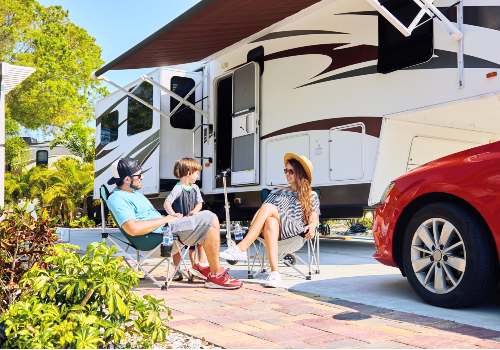
If you plan to full-time RV with a partner or family, you’ll have the opportunity to bond in a new way.
Spending all your time together in a traveling tin box creates a closeness that’s more than the one physically necessary in such a small space.
While many find this aspect of full-time RVing the one that breaks the camel’s back, those that stick it out through the adjustment phase find it very rewarding.
You learn to be more thoughtful and helpful because it makes daily living more peaceful and fun. You learn to work as a team to set up or tear down camp or locate new places to explore.
You learn to turn to each other for safety and comfort when things go wrong.
You also learn when to step outside the RV to give a traveling companion some alone, without that person needing to ask.
I find that my needs have become second to those of my partner, and when it’s reciprocated, it’s a win-win situation that makes you unbelievably close.
Opens Up New Income Opportunities
Making an income for full-time RVers is essential since many of us aren’t of retirement age, have passive income, or have a large savings account.
I find there is a mix of jobs full-time RVers use to sustain their lifestyle.
Many works for private companies but enjoy telecommuting from anywhere across the country. If they need to show up at an office, they plan their RV itinerary around it.
Another group of RVers operates their own business, either through blogs and social media platforms, selling on Etsy, or running a mobile business such as RV repairs.
The last group of full-time RVers tries workamping, where they get a free campsite in exchange for a set number of labor hours a week. Contracts average six months and can reduce camping expenditures to practically nothing during that time.
Another form of workamping is taking on seasonal jobs, such as working at an Amazon warehouse or during farm harvests.
What is great about working while full-time RVing is the flexibility to decide what hours/day/months you can work and still enjoy and pay for camping adventures.
Working directly out of your RV or just steps away from your campsite in an RV park frees up time and energy for better things.
Full-Time RV Cons
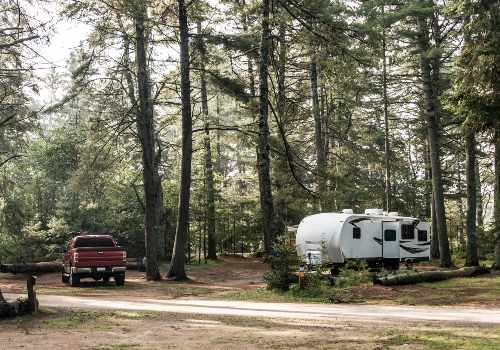
There are drawbacks to full-time RV life, and here are my biggest cons:
Being a Minimalist Isn’t For Everyone
I know I put streamlining your belongings in the pro list above, but not everyone will agree.
If you are a clotheshorse or just love displaying knickknacks, you’re not going to like living in an RV. People who love to cook may hate small RV kitchens and lack of storage for supplies.
Trying to force a life that isn’t your style will only lead to aggravation and fights that ruin RV travel.
And don’t forget the lack of privacy you’ll have when living in a recreational vehicle. For example, many RVs don’t have a separate room (outside the bathroom) where you can hide from your traveling party when you need to decompress.
Lack of Schedule
Not having a set routine when you full-time RV is very common but may bother some people.
Most of us like going with the flow and find there’s no need to schedule each hour of the day. But truthfully, others find that days seem to blend after a while, and campgrounds start to look alike, which drags them down mentally.
When you wake up without alarms, nap or eat when you want, head out on a hike when you feel like it, the time of day doesn’t matter.
Want to Connect With a Community of Over 1,078 RV Enthusiasts?
Most of us only pay attention to scheduling if we have a job that requires it, need to move campsites, or have special activities planned.
Dealing With the Unexpected
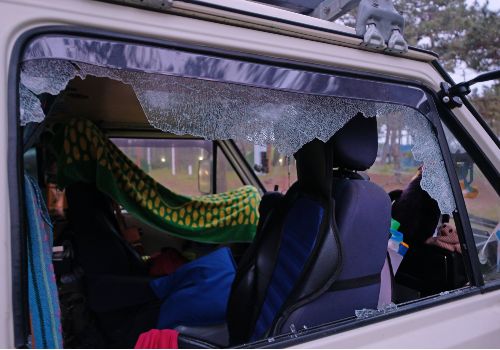
When you drive around with your home and all your worldly possessions, it can become stressful quickly when things go wrong.
A flat tire, dangerous incoming storm, torn awning, broken water line, cracked window, closed campgrounds, detours, or flat-out wrecks can and do happen.
The best advice is to think through possible scenarios you may encounter during your full-time RV travels and formulate different plans to deal with them effectively.
Another tip is to never skip on routine maintenance chores, no matter how much you hate them. Recaulk or reseal the roof, clean your waste tanks, inspect your tires, and avoid “unexpected” damage from lack of RV care.
If you neglected to take care of maintenance at home, it wouldn’t be any different in an RV, which indicates this life may not suit you.
Lastly, it would help to keep a sense of humor. Getting mad and yelling does absolutely nothing to fix a flat tire or any other problem.
Keep an RV repair kit with crucial tools, enroll in a roadside assistance plan, track the weather, and carry good RV insurance to help alleviate headaches from pop-up problems.
Wi-Fi, Laundry, Healthcare, Mail, and Gas
Full-time RV living means you pay closer attention to the location of the things that keep your lifestyle running smoothly.
INTERNET NEEDS
Most full-timers need reliable internet connections to work, check the weather, and stay in touch with family and friends.
Mobile phone data isn’t typically enough to cover needs, nor is relying on notoriously lousy campground Wi-Fi. So the only solution is to buy a Wi-Fi hotspot and pay the charges ($50-$150 monthly) to have internet whenever you need it.
KEEPING UP WITH LAUNDRY
If your RV doesn’t have a washer and dryer and you camp off-grid a lot, trying to keep up with laundry can get draining. Bringing your RV into towns to hit laundromats isn’t fun, and parking can often be challenging.
HEALTHCARE CHALLENGES
Trying to locate good medical care while traveling can be very hard, especially if your insurance dings you for out-of-network or emergency room visits.
Urgent care centers and pharmacy clinics have become my go-to healthcare destination for most needs which also goes for many of my fellow full-timers.
You’ll always need to take a moment when booking campsites or upon arrival to locate the nearest medical centers, and crosscheck them with your insurance carrier, so you’re ready in case of emergency.
MAIL DELIVERY OBSTACLES
Getting mail when you keep moving locations can cause problems. Most full-timers use an RV mail service that collects your mail and packages and then forwards it to your campground or the local post office under general delivery.
If you have important papers (like a current RV registration renewal), you may find yourself stuck at a campground or town until your mail arrives.
I find dealing with mail is an inconvenience, but it isn’t so bad with the advent of digital transactions and email for most correspondence that lessens the load.
FUEL EXPENSES
This one is simple. RVs are heavy, and most use a lot of fuel, including tow vehicles.
With fuel prices rising, expect a considerable portion of your RV budget to go for gas or diesel because you just can’t escape it.
You can lower the financial hit by staying in each new location or campground longer to reduce mileage.
Final Thoughts
The full-time RV life will have its ups and downs, but most agree that the benefits far outweigh the negatives.
Give all the pros and cons above lots of consideration before embarking on a full-time RV journey so you can prepare accordingly.
If you have the means, give full-time RVing a try. Even if it’s not your cup of tea, the experience will broaden your horizons and create memories that will last a lifetime!
Pros & Cons after 6 Months of RV Life (Video)
"Man cannot discover new oceans unless he has the courage to lose sight of the shore."
-- Andre Gide

